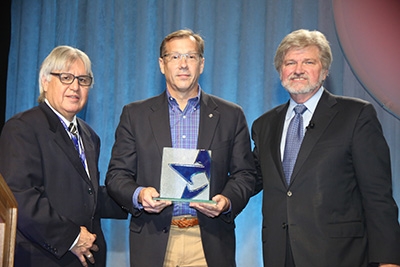Jim Clark
2014 Honoree - Michael Newton Award

Biography
A native of Los Angeles, Jim attended Hollywood High School and later graduated from the University of Southern California with a degree in urban studies. From a early age, Jim was interested in the role the arts and culture play in the life of cities.
After three years, Jim decamped to New York City to attend New York University where he obtained a Masters in Public Policy, focusing on cultural policy. While in New York, Clark worked at the Department of Cultural Affairs and later became the Executive Director of the Public Art Fund. During his tenure, Jim worked with many artists that shaped the contemporary art scene – Jenny Holzer, Christian Boltanski, Barbara Kruger, Felix Gonzales-Torres and fellow Angelena’s Alison and Betye Saar.
Motivated by his experience in working with community groups and public officials, Clark authored an arts management program geared toward individuals who wanted to work for arts councils and community based arts groups. The resulting curriculum - the graduate-level Arts & Cultural Management Program - found a home at Pratt Institute and now accepts students from around the world.
Clark left NYC for Dayton, Ohio to run Culture Works, a United Arts Fund, where he worked closely with city and county officials to implement one of the first cultural plans adopted by a local government. Public funding grew from $1 million to $2 million a year. After four years, Clark headed south to Lexington, Kentucky where he has been for the last 12 years as President & CEO of LexArts, a United Arts Fund and Arts Council.
In addition to raising over $1 million annually, Jim has developed the city’s public art program and forged partnerships with both the private and public sectors to generate new opportunities for the region’s artists. A local hospital invested more than $250,000 in artworks from Kentucky artists for its facilities, and Lexington’s Department of Environmental Quality & Public Works launched a public art initiative, now in its fourth year, spending approximately $100,000 annually on projects that inform citizens about pressing environmental issues.





